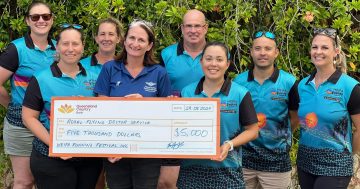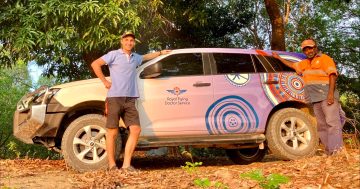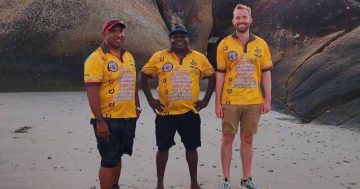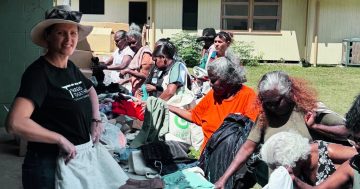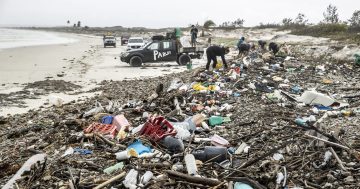
The RDFS Queensland mental health team says they are supporting flood-affected residents as they settle into a new normal. Photo: Supplied.
As the destruction left behind by Tropical Cyclone Jasper is slowly repaired, the human survival instinct has kicked in for residents as they begin to process their loss and create a new sense of normal.
That is the message from the Royal Flying Doctor Service (RDFS), which began to provide psychological first aid earlier in 2024 to those affected in the flood-impacted regions surrounding Cooktown.
They made weekly visits to Rossville and Ayton to provide initial mental health support and saw the devasting scenery which showed “how much mother nature has shifted”.
Two months later, RDFS Queensland section far north mental mealth manager Jos Middleton said demand for first aid intervention had lessened as people began to create their “new norm”.
“The service needs of those in flood-affected areas is shifting as we move into the recovery phase, and we are now seeing an increase in people seeking longer-term counselling, rather than the brief interventions and psychological first aid that was required soon after the event,” Ms Middleton said.
“As time goes by, people will fall into a new routine with their new normal and create new habits with it, which supports them to stabilise.”
She explained human beings were not “designed for trauma”, so it was often a struggle to process what had actually occurred.
“But we are also hard-wired for survival … we have this innate desire to survive and be alive,” she said.
“We can create a new normal.
“There might be some differences and, obviously at the moment, for a lot of those people who have been impacted, those differences are going to be around where they are living, how they’re sleeping [and] how they’re cooking their meals.”
Ms Middleton said that government funding fatigue was also a significant factor in residents’ stress.
“It’s a minefield to navigate, the amount of paperwork that comes with some of those requests, and navigating the complex processes can just be so overwhelming for people,” she said.
“They could be looking around the house and saying, ‘I don’t even have a pen anymore, my pens have all been washed away, and yet somebody is here telling me to fill out 20 pages of paper to access enough money to get a new fridge’.”
The RDFS mental health team aims to support residents through the stress of a seemingly never-ending list of tasks needed to survive and reclaim their lives.
“We really encourage people to take one step at a time, map out what the to-do list is, think about some effective problem-solving skills and look at what support is needed to help us solve those problems,” Ms Middleton said.
“Try and pick off some of the easy, low-hanging fruit, and then take a bit of time thinking about ‘which ones I feel up to today’; try and stay in the now.”
She said the team had increased in number and they were able to step back slightly from the Ayton and Rossville communities.
“We’ve now got time to look for the people of Wujal Wujal that we haven’t seen for a while, some have dispersed, and see how we can be of support to them,” she said.
“For example, when the clinicians that work from Cooktown and Wujal Wujal are in Cairns, they are bumping into Wujal Wujal people left, right and centre, at the night markets, that sort of thing, and providing more informal support, which is really lovely.”


